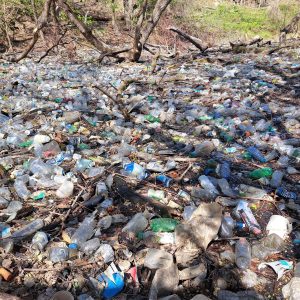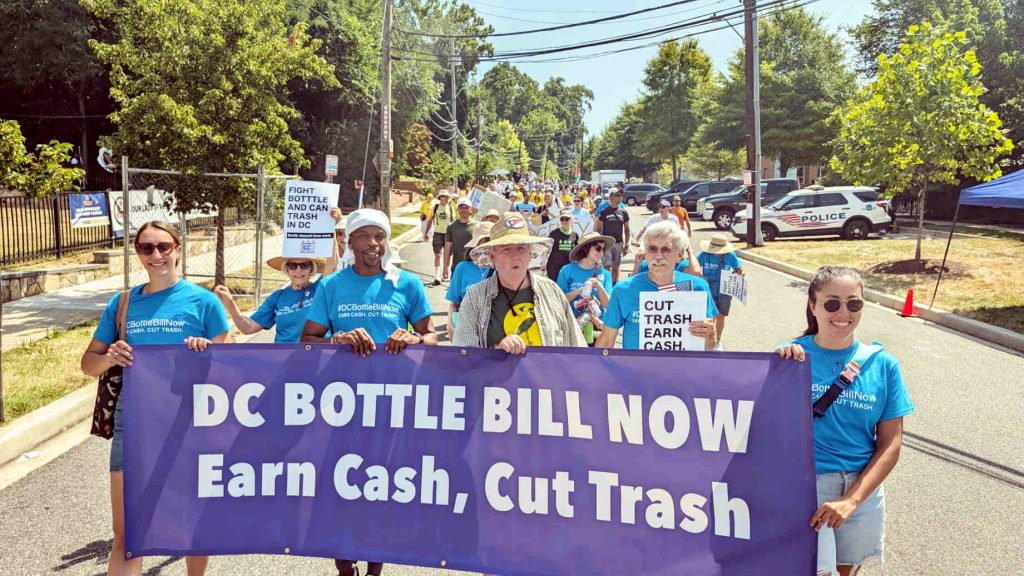Advocacy
Ward 8 Woods staff, Board members and volunteers use their expertise and connections to advocate for policies that heal the land and empower people. Our efforts center on three issue areas: parks and planning, waste reduction and recycling, and defending our tree canopy.
Parks and Planning
Much of the work of Ward 8 Woods is made necessary by neglect and mismanagement of public lands by the National Park Service and DC government. Rarely, if ever, have the responsible agencies found or received the resources needed for basic park maintenance, let alone restoration or public programs. At times, their words and actions have revealed indifference and victim-blaming towards Ward 8 residents.
Ward 8 Woods is an informed local voice advocating for parks that are healthy, beautiful, and inviting for residents and visitors alike. We lobby Congress and the DC Council for more park funding, and we press agency staff to be responsive to resident input. We have also persistently sought approval and funding for the construction of hiking trails and reforestation projects. Ward 8 has seen no new trail construction since the early 1990s.
Advocacy partners:
Anacostia Park and Community Collaborative
Waste Reduction and Recycling
Getting trash out of our immediate environment is the priority, but what about all the trash that is correctly disposed of in a trash bin or dumpster? Most of DC’s trash is sent to be burned at an incinerator in Lorton, Virginia, which spews toxins into the air in a populated area. Landfills are preferable to incineration, but still problematic, as they belch methane. Trash reduction is the only sustainable way forward.
 On our current path, humans will eventually bury our planet in trash. We need to generate less, recycle more, and switch to reusable and biodegradable materials. This transition to a circular economy could create millions of green jobs.
On our current path, humans will eventually bury our planet in trash. We need to generate less, recycle more, and switch to reusable and biodegradable materials. This transition to a circular economy could create millions of green jobs.
DC’s recycling rates are pitifully low, especially in low-income communities. Ward 8 Woods is a proud member of the 3RC for DC – the Return, Refund and Recycle Coalition that’s campaigning for a strong, equitable beverage container deposit-return law in the District. The 11 states that already have such “bottle bills” enjoy dramatically reduced littering and increased recycling rates.
The 11 states that already have such “bottle bills” enjoy dramatically reduced littering and increased recycling rates.
To the same end, we support DC’s ban on non-biodegrading foam containers and plastic straws, but want to see more enforcement and better outreach for them. For plastic grocery sacs, after 15 years of DC’s 5-cent bag fee, it’s time to move toward an outright ban, as Montgomery and Prince George’s County in Maryland have done.
Parks east of the river continue to be used as illegal dumping grounds for construction materials, furniture, electronics, car parts and household items. Tires are a particular problem, because disposing of them appropriately is expensive and inconvenient. Few who evade the rules by dumping illegally are caught or punished, while cleaning up after them often falls to Ward 8 Woods and other volunteers. We routinely push for more government resources for waste-reduction education, monitoring and enforcement.
Advocacy partners:
Defending Our Tree Canopy
More than any other part of DC, Ward 8 is dotted with privately owned, undeveloped lots that are wooded. Many have sat untended for decades, neglected by absentee real estate investors who, even though they are legally responsible to maintain their property, ignore repeated outreach from Ward 8 Woods, defy citations from the District, and fail to pay property taxes. But now that property values are up and developers are interested, these same owners are rushing to clear their land of trees to make way for townhouses and apartment buildings.
Under DC’s tree protection laws, landowners are required to obtain permits before cutting trees, and pay significant fees to cut any designated Special Trees, defined as having a trunk circumference greater than 45 inches. These fees go into a fund for planting of new trees. Even larger “Heritage Trees,” having trunk circumferences of more than 100 inches, must be either preserved or relocated.
But given the financial incentive to develop, such fees are not enough to stop deforestation. In 2023, DC’s Department of Urban Forestry approved the removal of 293 special trees in Ward 8. Details of tree cutting permits are easily viewed online.
DC’s Tree protection rules must be amended to increase fees and require Zoning Board approval before DDOT issues land-clearing permits. This would prevent “speculative deforestation” for development projects whose construction is still a long way off or may never materialize. Funds from tree cutting permits should be used to purchase not just trees, but land – privately owned wooded areas – and set them aside as public parkland, before the window of opportunity to set aside green spaces closes.
Advocacy partners:
Rock Creek Golf Course for All

